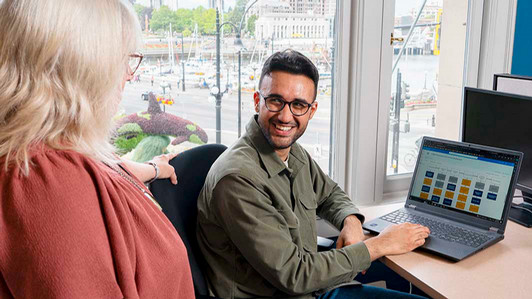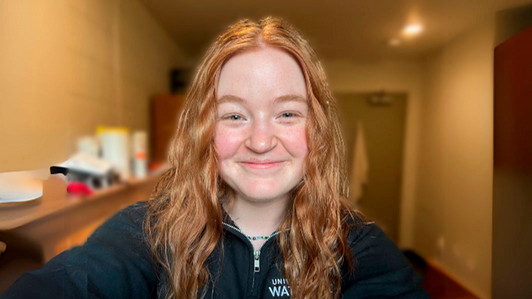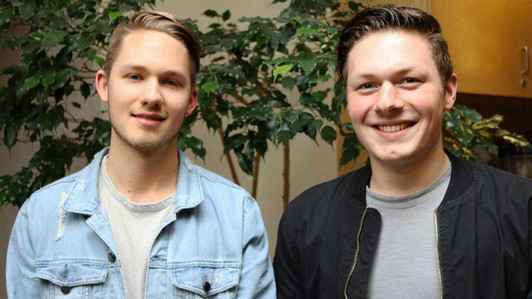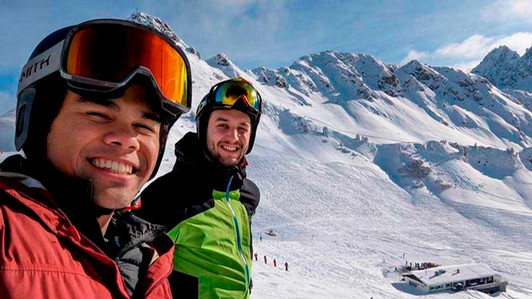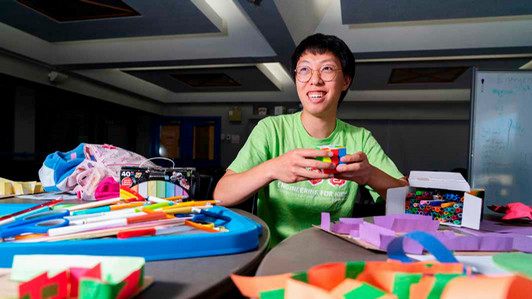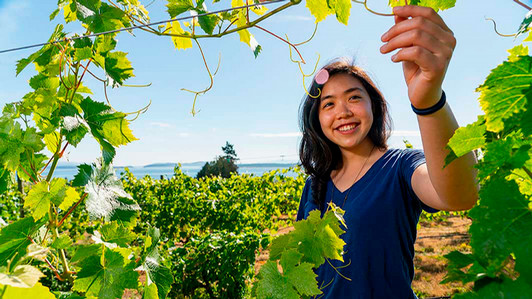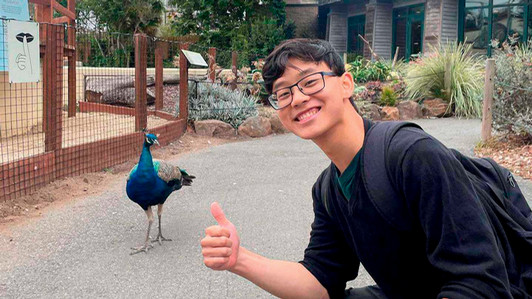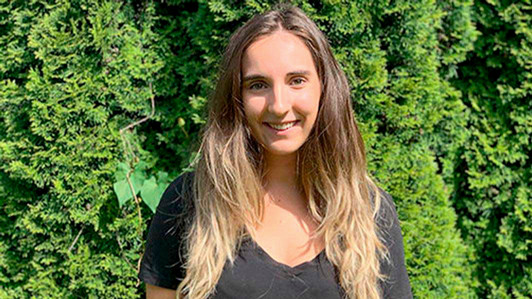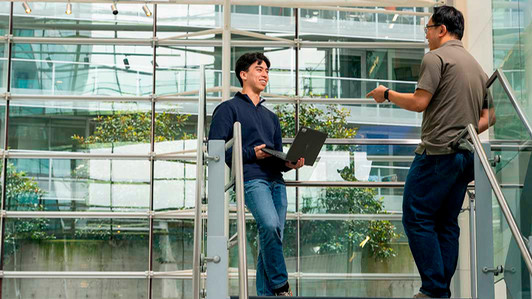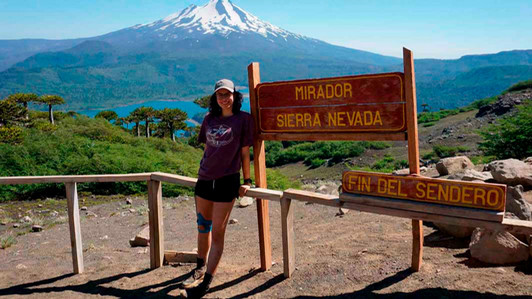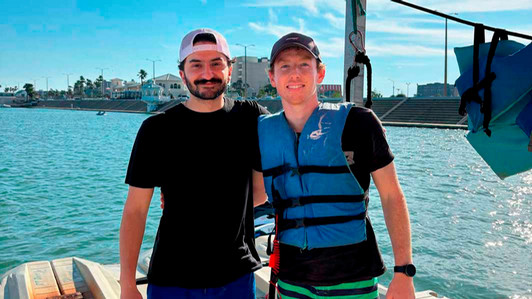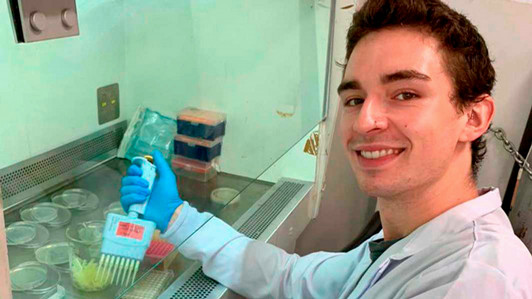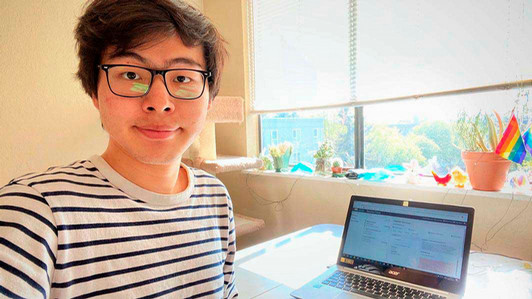Engineering
Engineering Co-op is mandatory for undergraduate students studying:
- Biomedical Engineering
- Civil Engineering
- Computer Engineering
- Electrical Engineering
- Mechanical Engineering
- Software Engineering
Office & contacts
Our regular business hours are Monday to Friday, 8:30 a.m. to 4:30 p.m.
Office: ECS 204
engrcoop@uvic.ca
250-472-5800
Co-op coordinators
Biomedical engineering
Ash Senini (ECS 230)
asenini@uvic.ca
Civil engineering (student # ends in 0-3)
Kelly Stegman (ECS 232)
kellystegman@uvic.ca
Civil engineering (student # ends in 4-9)
Wendy Beairsto (ECS 226)
wbeairsto@uvic.ca
Computer engineering
Monty Raisinghani (ECS 210)
montyr@uvic.ca
Electrical engineering (student # ends in 0-3)
Kelly Stegman (ECS 232)
kellystegman@uvic.ca
Electrical engineering (student # ends in 4-9)
Monty Raisinghani (ECS 210)
montyr@uvic.ca
Graduate students (except MTIS and MADS)
Mostafa Rahimpour (ECS 212)
mrahim@uvic.ca
Master of Engineering in Applied Data Science (MADS)
David Woodward (ECS 225)
davidwoodward@uvic.ca
Master of Engineering in Telecommunications and Information Security (MTIS)
Imen Bourguiba (ECS 224)
imenbour@uvic.ca
Mechanical engineering (student # ends in 0-4)
Calvin Tripp (ECS 220)
ctripp@uvic.ca
Mechanical engineering (student # ends in 5-9)
Susan Fiddler (ECS 222)
sfiddler@uvic.ca
Software engineering: (student # ends in 0-4)
Ash Senini (ECS 230)
asenini@uvic.ca
Software engineering: (student # ends in 5-9)
Imen Bourguiba (ECS 224)
imenbour@uvic.ca
Undeclared engineering
Mostafa Rahimpour (ECS 212)
mrahim@uvic.ca
Career educator
Karae White (CSB 110)
karaewhite@uvic.ca
Employment development officers
Morgan Filliol (ECS 218)
mfilliol@uvic.ca
Tara Coulter (214)
taracoul@uvic.ca
Undergraduate programs
As an undergraduate student, you can take part in these co-op formats.
- regular full-time work term
- entrepreneurial co-op
- parallel co-op (part-time)
- work term transfer
- work term challenge
Learn more about these types of co-op.
What is required?
For undergraduate students:- mandatory co-op—part of your degree program
- automatically enrolled; no application required
- 4 work terms required
- must complete ENGR 130 (Introduction to Professional Practice)
Average salaries
You'll receive a salary from your employer during each co-op work term. Co-op salaries vary according to many factors, including:
- your previous work experience
- the industry you're working in
- the responsibilities of your co-op job
Here is an average monthly salary for a full-time work term in engineering:
- undergraduate: $3,456.20
- graduate: $4,258.55
View detailed engineering salaries or salaries for all programs.
Fees
As a Bachelor of Engineering (BEng) or Bachelor of Software Engineering (BSEng) student, you must:
- complete 4 co-op work terms
- pay your co-op tuition fee on an installment plan, with one installment per term
- start paying your co-op tuition fee at the beginning of the first year
Tuition fee installment plan:
- domestic undergraduate students: 8 installments of $403.78
- international undergraduate students: 8 installments of $848.37
- graduate domestic students: $807.56 per work term
- international graduate students: $1,015.71 per work term
If you're a bridge student admitted directly into third year, you'll start paying the fee when you begin your third-year courses.
If you challenge a work term, you'll pay one fewer installment per challenge. If you're a transfer student, you may transfer up to 2 work terms and pay two fewer installments.
Work terms
Co-op work terms occur in the fall, spring or summer terms and are typically 4 months in length.
If you would like access to search for co-op jobs, please complete our co-op jobs access form.
Work term transfers
If you have received credit for an engineering work term at a previous post-secondary institution before attending UVic's engineering program, you can receive work term transfer credit that counts toward your engineering co-op requirement.
First year students and second year transfer students can transfer (or challenge) a maximum of 1 work term. Third year bridge students can transfer (and/or challenge) a maximum of 2 work terms.
You must apply to transfer a work term during your first term in the engineering program at UVic by submitting the work term transfer form.
Work term challenges
If you have completed relevant engineering work experience before attending UVic's engineering program, you can receive work term challenge credit that counts toward your engineering co-op requirement.
You are required to submit assignments (including a work term challenge report) to complete a work term challenge.
First year students and second year transfer students can challenge (or transfer) a maximum of 1 work term. Third year bridge students can challenge (and/or transfer) a maximum of 2 work terms.
You must apply to challenge a work term during your first term in the engineering program at UVic.
Learn more about:
Sample jobs & employers
Here are a few sample jobs. For specific examples, contact your co-op coordinator.
- audio software engineer with Electronic Arts Canada
- design and production co-op student with Creo
- engineering co-op student with Ballard Power Systems
Potential career paths
- healthcare engineer
- structural designer
- environmental analyst
- software engineer
- cyber security officer
- big data analyst
- project manager
- application developer
Tanvir Kahlon (software engineering)
As someone who is passionate about problem solving and design, Tanvir Kahlon (he/him) knew he wanted to study at a university where he could be challenged. The international student from India was...
Aislinn Dressler (civil engineering)
As a civil engineering student, Aislinn Dressler is incredibly driven. The fourth-year student has leveraged each of her co-op experiences to learn about herself and develop the perfect career...
Alex McKay and Nick Saar (engineering)
Engineering students Alex McKay and Nick Saar designed a pre-incident plan for a navy base fire department.
Alex Thornewell (electrical engineering)
When Alex Thornewell (he/him, electrical engineering) was looking for his first co-op work term, he found the application process frustrating. As someone with a neurodivergent identity, the...
Blaine Tubungbanua (mechanical engineering)
I had always entertained the idea of an international co-op, but had never considered going to Germany, or even Europe, but I saw the posting for Airbus Helicopters in Donauwörth Germany,...
Casey Woo (mechanical engineering)
As a fourth-year student in mechanical engineering, Casey Woo was excited to share his knowledge and passion for solving problems with camp participants at Engineering for Kids.
Christine Wong Chong (biomedical engineering)
When Christine Wong Chong enrolled as a biomedical engineering student at UVic, she was inspired by the prospect of working in a field that contributes to medical advancements that improve...
Cornelius Ong (mechanical engineering)
I'm Cornelius, a fourth-year mechanical engineering student at UVic, and I recently completed an 8-month co-op as an Actuator Design Intern with the Tesla Optimus team, Tesla's humanoid robot...
Ellie Walters (electrical engineering)
“Have you ever been to a ball?” No, have you?” I replied. “No, I believe it’s an Austrian tradition,” Vic, one of the...
Hailey Gascoigne (computer engineering)
Hailey Gascoigne, a fourth-year computer engineering student, recently completed an international co-op work term as a Research Intern for Smart Home Technologies at Thomas More University College...
Kirsten Krajnc (civil engineering)
Civil engineering co-op Kristen Krajn learned how to collect historical weather data while working with Indigenous Services Canada.
Liam Shatzel (computer science)
When Liam Shatzel (he/him) was choosing a university, he zeroed in on UVic's co-op program in computer science. The chance to put his skills into action during his degree was a deciding factor, and...
Mahsa Torabi (civil engineering)
My name is Mahsa Torabi and I'm from Iran. I'm a third-year civil engineering co-op student who recently completed a co-op work term as a visiting researcher at the Carbon Leadership Forum in...
Mariana Latta Suazo (mechanical engineering)
My name is Mariana and I grew up in Kitchener, Ontario and am now in my 4th year of Mechanical engineering at UVic. I picked engineering because of my love for math and science, and my desire to...
Matt Lebl (software engineering)
I’m Matt, and I’m a fourth-year student of software engineering at UVic. I decided to take software engineering because I discovered that I love programming, and I’d...
Matt Wilkinson (electrical engineering)
Matthew Wilkinson, a fourth-year electrical engineering student, completed his co-op work term as a manufacturing controls intern at Tesla. Operating at the lithium refinery outside of Corpus...
Robin Brooks (civil engineering)
My name is Robin Brooks, and I grew up on the lands of the Ts'uubaa-asatx peoples (commonly known as Lake Cowichan, BC). I am entering my fourth year of Civil Engineering at the University...
Yichun Zhao (computer science)
For UVic student Yichun Zhao, helping develop a computer system that ensured people entering BC from outside the country were managing self-isolation was a “wild ride.”
Graduate programs
As a graduate student, you can take part in the optional co-op or work experience program.
Program facts
- master's students: complete 2 work terms (8 months of work) to receive a co-op designation, or 1 work term to receive a "work experience" endorsement on your degree
- doctoral students: complete 3 work terms (12 months of work) to receive a co-op designation, or 1 work term to receive a "work experience" endorsement on your degree
- work terms do not have to be continuous—you can work for different employers on different work terms
Application requirements
- you must have your grad supervisor's permission to participate in the co-op program and each specific work term
- you must complete your first co-op work term before the academic term in which you complete your academic requirements (defend your thesis or equivalent)
- you must complete regular work term requirements (including Introduction to Professional Practice, competency assessments and a work term report)
How to apply
To apply, complete and submit the graduate co-op application form.
Due dates each term
- January 21 for spring intake
- September 21 for fall intake
International students should apply at least 2 semesters before the intended work term to ensure that there is enough time to receive a co-op work permit. For example:
- summer work term: submit your intake form and attend the Introduction to Professional Practice workshop in the fall of the previous year
- fall work term: submit your intake form and attend the spring intake workshop in the same year
Get support
We're here to support you with every step in your co-op journey, from applying to co-op to making sure you're supported at work. Contact your co-op coordinator or office for assistance.
If you identify as having a disability or a mental health condition, if you belong to an equity group, or if you identify as Indigenous, we have additional supports for your co-op experience.

